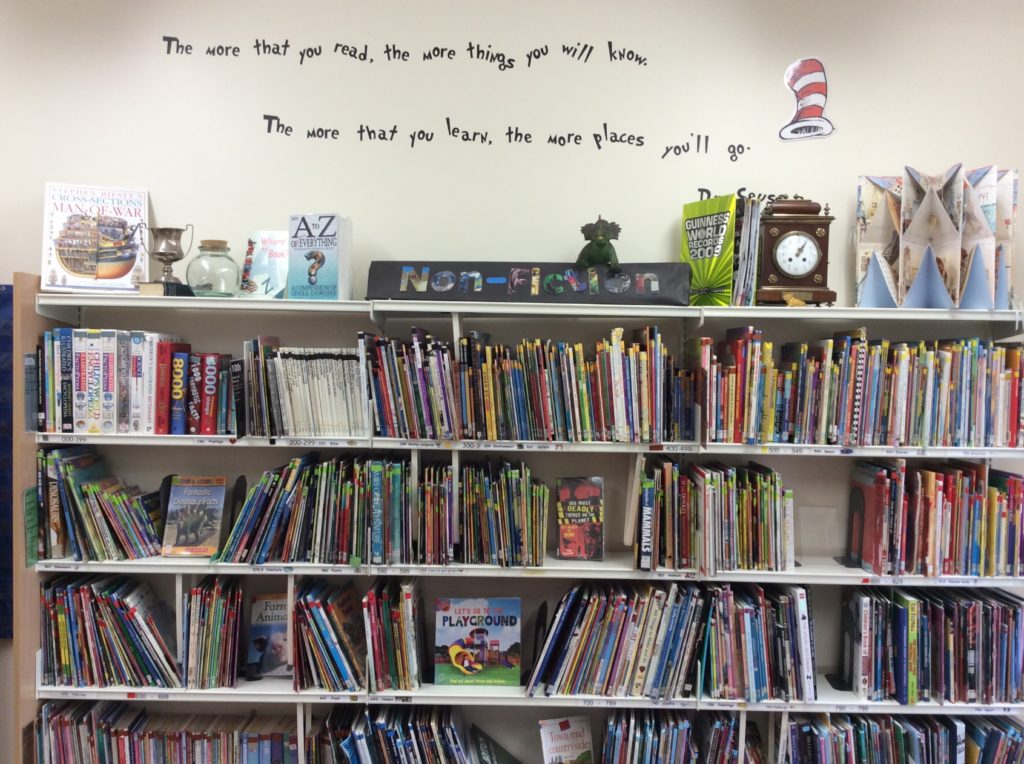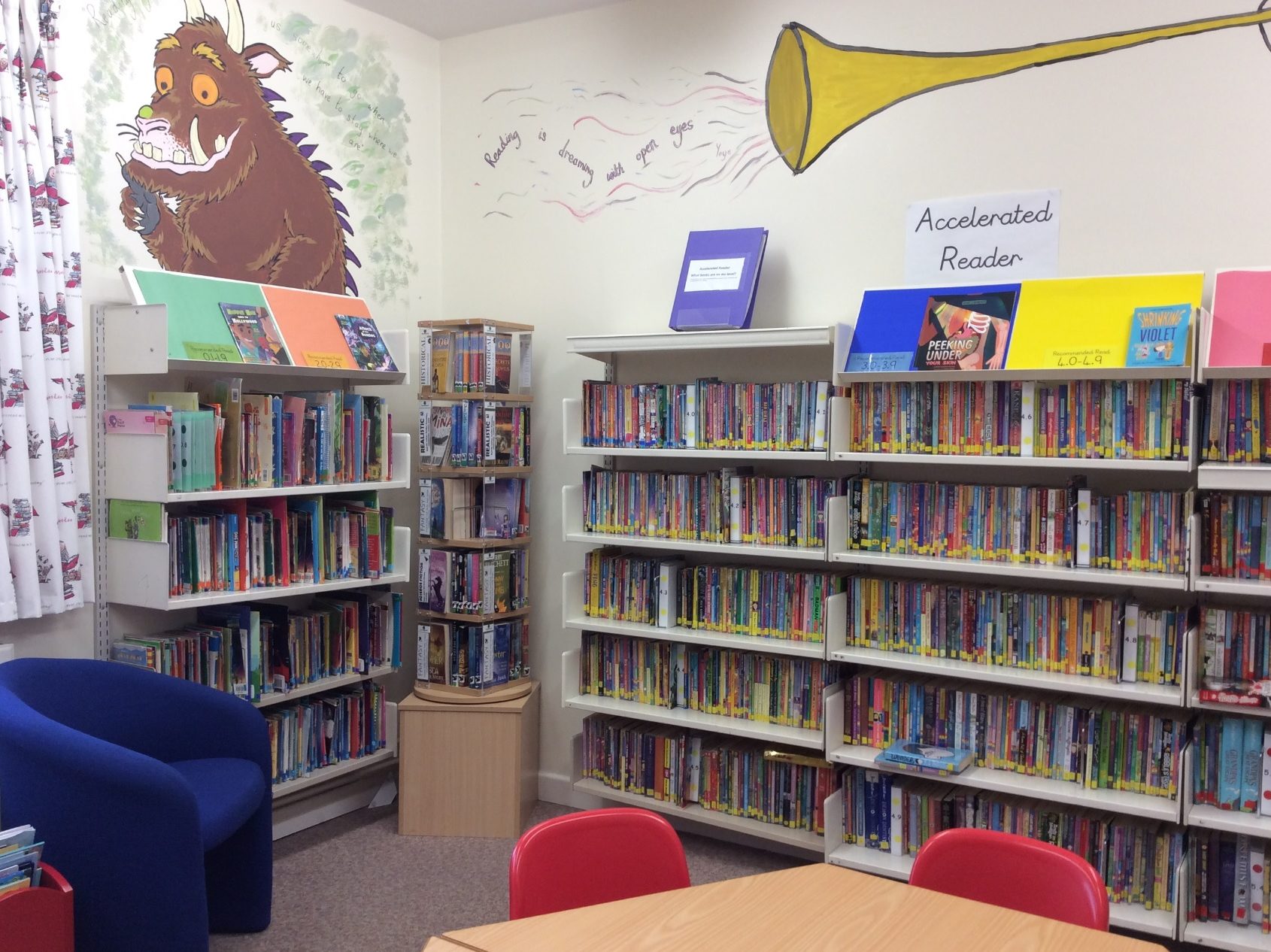The Duchy School
English
INTENT
At The Duchy School, we believe that ‘Mighty Oaks from Little Acorns Grow’. Our quality English curriculum intends to develop children’s love of reading, writing and discussion from the moment they join us in the Foundation Stage, instilling them with a lifelong love of words and their infinite power. It is our intent, that children develop a secure knowledge-base in Literacy, which follows a clear pathway of progression as they advance through the primary curriculum. We believe that a secure basis in literacy skills is crucial to a high-quality education and will give our children the tools they need to participate fully as independent learners and members of society. We will provide an English curriculum that is challenging, stimulating and creative which inspires children to become responsible, independent thinkers and learners. We aim to inspire creativity through an appreciation of our rich and varied literary heritage and a habit of reading widely and often. We recognise the importance that communication and language play in enabling children to fully express their thoughts, feelings and ideas. The English curriculum intends to help children acquire a wide vocabulary, an understanding of grammar and knowledge of linguistic conventions for reading, writing and spoken language so that they can express themselves clearly through both writing and spoken language. We aim to nurture a culture where children take pride in their writing, can write clearly and accurately and adapt their language and style for a range of contexts. Through sharing high quality texts and our own examples of writing, we strive to teach every learner to value, respect and appraise the literary work of others and themselves. We aim to make the English curriculum relevant to our children by making links in the English curriculum to both local and national literary works. We believe that all good writers refine and edit their writing over time, so we therefore teach children to develop resilience in being able to identify their own areas for improvement in all pieces of writing, editing their work effectively during and after the writing process. Through our English Curriculum, we strive to teach the children how vital their reading, writing, speaking and listening skills will be in the real world. By giving this context to their learning, the children understand the value of English to them now, and in their futures and how they can indeed grow into ‘Mighty Oaks’.
OVERALL IMPLEMENTATION
These aims are embedded across our English lessons and the wider curriculum. We have a rigorous and well organised English curriculum that provides many purposeful opportunities for reading, writing and discussion. Teachers use and adapt teaching and learning sequences as appropriate to their classes, but also ensure that cross curricular links with concurrent topic work are woven into the programme of study. Our curriculum closely follows the aims of the National Curriculum for English 2014.
READING IMPLEMENTATION
The school teaches phonics through the Read, Write, Inc programme (a synthetic phonics programme) and the children use the reading books from this scheme to support early reading before then reading a range of banded books and progressing onto Accelerated Reader in KS2. Helping your child with phonics at home is a key part of their progress and we appreciate all of your support. We know that many of you are keen to help your child in the best possible way, and in order to do so, please take a look at the following video to learn how the children should be ‘sounding out’ their words: https://www.youtube.com/watch?v=UCI2mu7URBc
All classrooms have a stimulating Book Corner with a range of fiction & non-fiction books.
Children are encouraged to read at home through our Reading Rainbow where children collect a Gold Coin for their class each time they read five times in a week. The Reading Rainbow is displayed in a central area of the school. At the end of each half term, the class with the highest number of coins in KS2/F & KS1 chooses a book for their class Book Corner.
EARLY READING & PHONICS: FOUNDATION & YEAR 1
Reading in Foundation:
Home/School Reading Diaries are introduced. Parents and adults are expected to record in the Reading Diary when children have read, what book they have read with a comment that supports progression in reading/how well the child has read the book.
- Daily RWI sessions: new sounds/green and red words;
- Main input followed by differentiated phonics session
- Move onto Ditty books in the RWI sessions when children are secure with the following sounds: f/l/m/n/r/s/v/z/sh/th/ng/nk/b/c/d/g/h/j/p/qu/t/w/x/y/ch/a/e/i/o/u and can blend to read the green words in Red Ditty books and red words /put/and/I
- Home learning: phonic sheets to practice the sound and formation of that letter;
- From day one, the children take home a Library book to share which is changed twice a week.
Reading in KS1:
- Daily 30 minute Phonic sessions in ability groups;
- Home Reading: children take home a RWI ‘bookbag book on the same level as they are reading at school. Later in the week they then bring home the RWI book they have been reading their RWI group;
- Library: children take home a library book they have chosen for parents/carers to read to them.
Reading in KS2
- Daily 25 minutes RWI Spelling sessions
- Teaching of Y3/4 and Y5/6 Word Lists is every Friday
- From Y3: Children who need a continued focus on phonics will continue to develop their phonics knowledge using RWI; SBPs will reflect the bespoke strategies;
- Reading is taught in whole class sessions using Complete Comprehension. through a new text each week children develop and apply their comprehension skills;
- For independent reading, children move onto the Accelerated Reader Programme following the Star Reading Test which gives each child a ZPD (Zone of Proximal Development); children read at their level which is monitored by the class teacher within that ZPD; they must achieve at least 80% in two quizzes before moving on;
- Children move onto the next level through teacher assessment of fluency/key skills demonstrated in reading sessions and AR scores
- Library sharing/reading book for pleasure
WRITING IMPLEMENTATION
- English is taught as whole class lessons, so that all children have access to the age-related skills and knowledge contained in the National Curriculum. (Link to national curriculum)
- Teachers plan teaching sequences based around a core text (one of the Texts that Teach), and follows a three-part structure: Learning about the text (Immersion), Practising writing the text (Imitate and Innovate) and Independent writing (Invent).
- Teachers plan their units using the ‘Delivering Teaching Sequences’ guidance to ensure that lessons are cohesively planned and structured.
- Most teaching sequences will follow a 3-week structure with each part being approximately one week. The same structure should also be used for texts chosen from elsewhere. These must be chosen to reflect the needs of the class, planned in accordance with the TLS structure and passed by the English leader to ensure they have sufficient depth and richness of vocabulary.
- Prior to each English teaching sequence, the children are set an elicitation task. They are asked to complete a piece of writing in the genre and format that they will be learning about. Teachers use the outcomes from the elicitation tasks to plan and set appropriate and challenging targets for pupils.
- At the end of each teaching sequence, pupils complete a writing ‘final task’. This is assessed against the extended I can’s- an amalgamation of the learning objectives and success criteria that the pupils have been learning over the course of the 3 -week sequence. The final task is written on bordered paper.
- Children are set half termly English targets. These targets are shown at the back of children’s books. When pupils evidence that they have met their target, the teacher writes TG to show the target has been met and dates the target card at the back of the pupil’s book. Once the children have shown that they have met this target consistently, they are given a more challenging target to achieve.
- Every Duchy classroom has an eye-catching English Working Wall. The working wall is used to collate evidence of learning from each teaching sequence and act as a prompt and support for children as they are working.
- Across the year, children experience a range of non-fiction genres. They also experience a range of narrative styles. Texts are chosen to reflect both this, the needs and interests of the class and the wider curriculum taught.
- Before beginning to plan, teachers identify the ‘writerly knowledge’ needed for a successful writing outcome, beginning always by identifying the intended effect of the model text before investigating in some detail the elements of grammar, vocabulary and text structure that help to create this.
- Grammar and Punctuation: Grammar and punctuation knowledge and skills are taught through English lessons as much as possible. Teachers plan to teach the required skills through the genres of writing that they are teaching, linking it to the genre to make it more connected with the intended writing outcome. Teachers sometimes focus on particular grammar and punctuation skills as stand-alone lessons, if they feel that the class need additional lessons to embed and develop their understanding or to consolidate skills.
- Within lessons, teachers and teaching assistants target support for children working below and towards age related expectations to enable them to achieve at an age-related level wherever possible. This may involve a greater level of scaffolding and access to additional support materials such as word Banks or a greater level of modelling.
- Where children may be experiencing difficulty in reading and/or writing because they have missed or misunderstood a crucial phase of systematic phonics teaching, structured intervention programmes are put into place to plug gaps and consolidate prior learning.
- Children working at greater depth are given opportunities to extend their writing in a variety of ways, including through showing greater control in their writing, a deeper understanding of the impact that their writing has on the reader and by using a higher level of vocabulary and grammatical features.
SPELLING
- Spellings: Spellings are taught according to the rules and words contained in Appendix 1 of the English National Curriculum.
- Children in Foundation and Year 1 are taught the RWI phonics scheme. Children are encouraged to use their knowledge of sounds to write phonetically plausible words. Children are taught to spell common exception words discretely.
- In Year 1 the children move onto phase 5 phonics and the children begin to pick the correct grapheme for each sound. Children continue to learn an expanded list of common exception words.
- In Year 2 the children begin the year by revising Phase 5 phonics. They continue to be taught how to make the correct spelling choices. After the revision of Phase 5, the children then move on to the RWI spelling programme looking at common exception words and spelling rules
- In Years 3-6, teachers use the RWI spelling programme and teach discrete spelling lessons for 15 minutes a day. Teachers also plan spelling lessons focusing on the common exception words for Yr3/4 and Yr5/6.
- Children in KS2 are assessed half termly on the appropriate common exception words for their year group/stage.
IMPACT
- The impact of our English curriculum on our children is clear: progress, sustained learning and transferrable skills.
- Pupils will enjoy reading and writing across a range of genres
- Pupils of all abilities will be able to succeed in all English lessons because work will be appropriately pitched, modelled and scaffolded.
- Pupils will have a wide vocabulary that they use within their writing and in discussion.
- Pupils will leave primary school being able to effectively apply spelling rules and patterns they have been taught
- Parents and carers will have a good understanding of how they can support spelling, grammar and composition and home, and contribute regularly to homework
- The % of pupils working at ARE within each year group is consistently above national averages
- The % of pupils working at Greater Depth within each year group is consistently above national average
- There will be no significant gaps in the progress of different groups of pupils (e.g. disadvantaged vs non disadvantaged)
- As a result of our phonics teaching 100% of pupils passed the national Phonics Screening Check in December 2020. Our phonics results are consistently above national average.




